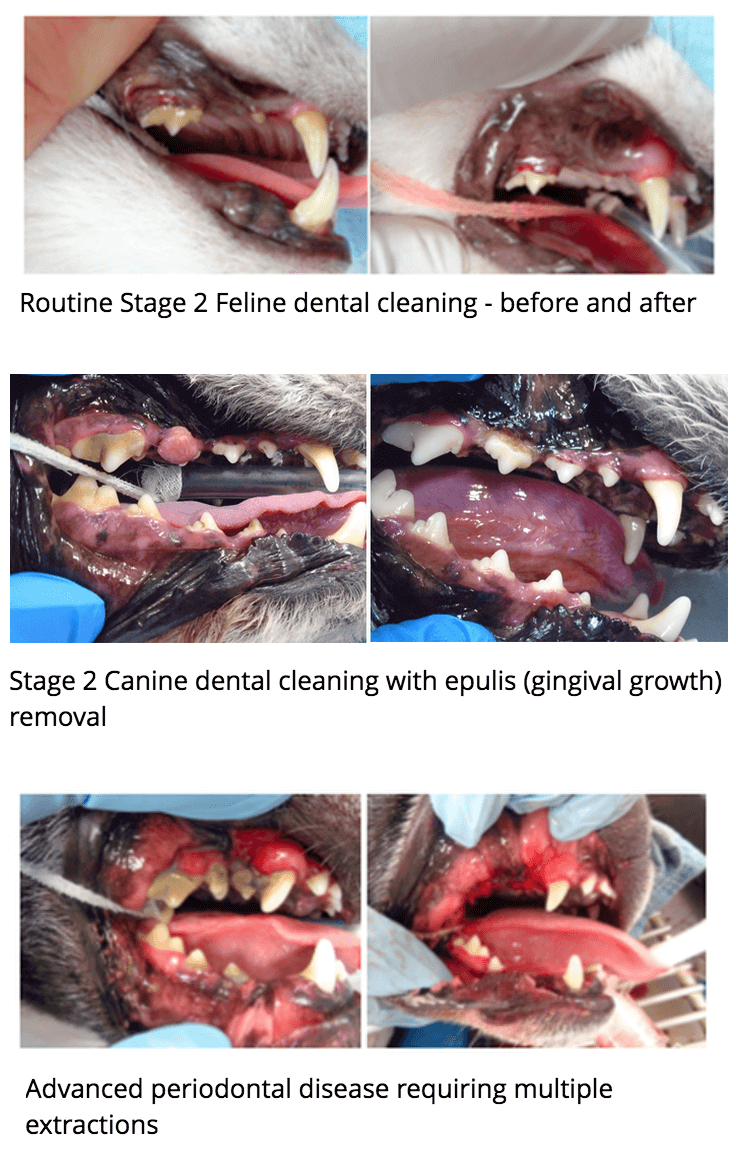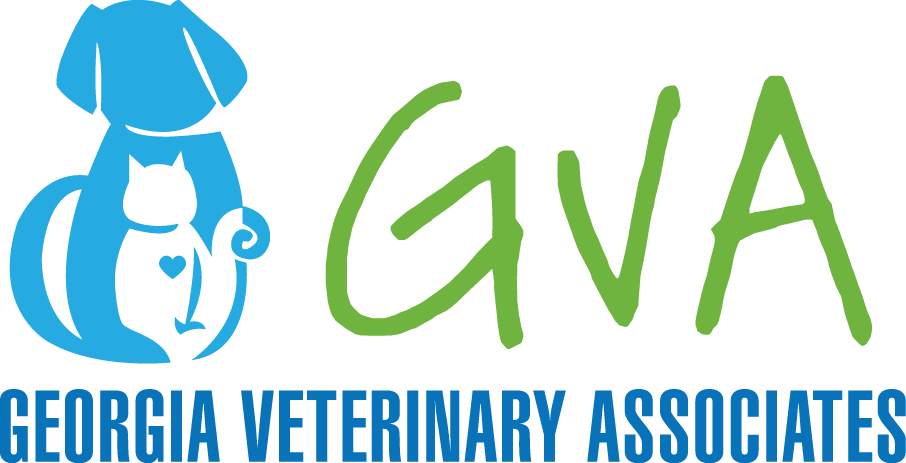 Just like humans, tartar builds up on your pet’s teeth and needs to be scaled away professionally. Bad breath is never normal, and is often an early indicator of dental disease. Pets often break teeth or form abscesses without obvious symptoms, and owners may not notice until the damage is advanced.
Just like humans, tartar builds up on your pet’s teeth and needs to be scaled away professionally. Bad breath is never normal, and is often an early indicator of dental disease. Pets often break teeth or form abscesses without obvious symptoms, and owners may not notice until the damage is advanced.
Dental disease has effects far beyond "dog breath". Buildup of tartar has been shown to increase the risk of heart disease, kidney disease, and other significant health issues. It is also often a painful condition for your pet.
A little prevention goes a long way, particularly in this area of your pet’s health. During your pet’s wellness exam we will evaluate the teeth and gums for periodontal disease, tumors, or broken teeth. We may recommend preventive products such as pet-friendly toothpaste, oral rinse, or dental treats. If a full dental cleaning is needed, we will discuss an individual plan for your pet.
Common Signs of Dental Disease:
-
Bad breath
-
Excessive drooling
-
Swelling of the mouth or face
-
Changes in eating habits, dropping food
-
Pawing the mouth or rubbing the face
-
Red or bleeding gums
-
Loose or missing teeth
Dental Cleanings
Most dental procedures are outpatient (no overnight stay) and include:
-
Anesthesia - Use of full anesthesia is the only way to thoroughly evaluate and clean your pet's teeth, including under the gum line where large percentages of tartar and dental disease can occur not visible to the naked eye. While many owners are concerned about the risks of anesthesia, our protocols are designed to keep your pet as safe as possible. Another factor to consider is that dental cleanings while tartar buildup is mild are typically quick and easy, and anesthesia time is minimized. Avoiding the procedure until dental disease is advanced increases the risk of your pet needing extractions or more extensive dental work, which can have important impacts on their overall health and require longer times under anesthesia.
-
Pre-operative Bloodwork - Full screening bloodwork is performed prior to any anesthetic procedure for your pet's safety.
-
IV Fluids - All pets under anesthesia receive an IV catheter, and IV fluids to maintain hydration and blood pressure.
-
Complete oral examination - In addition to checking all parts of your pet's teeth and gums, we will also perform a full oral exam to rule out hidden oral tumors.
-
Digital Dental X-Ray - A full set of mouth x-rays is taken on each dental patient to evaluate the health of the teeth roots and the surrounding bone.
-
Ultrasonic Scale and Polish - Our 3M Ultrasonic dental machine allows for quick and thorough cleaning of all surfaces of the teeth, including under the gum line. After scaling teeth are polished to restore their smooth enamel protection.
-
Medications to go home - After your pet's dental procedure, they will be discharged with antibiotics and pain medications.
-
Instructions for at home dental care - Once your pet's teeth are back to a "clean slate" we will help you pick the right plan for maintaining their oral health. Most pets still need regular cleanings (just like people!), but at-home products like treats and toothpaste can help slow the recurrence of tartar.
